Dr. Rajendra Prasad
President
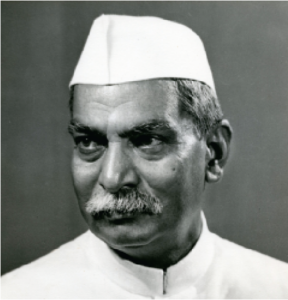
President
Dr Rajendra Prasad (1884-1963) was the first President of Bharat, serving from 1950 until 1962. Born in the village of Zeradei, in the Siwan district of Bihar, Prasad was one of seven children in a family of modest means. He excelled academically, earning a scholarship to study at Calcutta’s prestigious Presidency College.
Prasad’s political career began in the 1920s when he became active in the Indian National Congress and the freedom struggle against British colonial rule. He quickly rose through the ranks of Congress and was elected to its Working Committee in 1924. He was an active participant in the non-violent civil disobedience movement.
After Bharat gained independence in 1947, Prasad was elected as the President of the Constituent Assembly, which was responsible for drafting the Bharatiya Constitution.
In 1950, Prasad was elected as Bharat’s first President by the Constituent Assembly and was re-elected in 1957. During his tenure as President, he played a crucial role in consolidating Bharat’s democracy and worked to improve the lives of the poor and marginalised through various social welfare programs.
Dr Rajendra Prasad was widely respected by the people of Bharat, and his contributions to the country’s political and social development are still remembered and celebrated. He is considered one of the foremost leaders of modern Bharat.
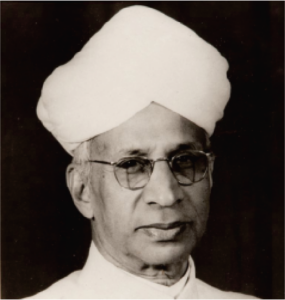
Vice President
Dr Sarvepalli Radhakrishnan was a renowned Bharatiya philosopher, statesman, and academic. He served as the President of Bharat from 1962 to 1967 and was one of the most distinguished scholars of his time.
Born on September 5, 1888, in a small village in the Madras Presidency (now part of Andhra Pradesh) in British Bharat.
After completing his PhD at the University of Oxford in 1918, where he wrote his thesis on “The Ethics of the Vedanta and Its Metaphysical Presuppositions”, he began a successful academic career, serving as a professor of Philosophy at various universities in Bharat, including Mysore University, University of Calcutta, and the University of Allahabad. He also served as Vice-Chancellor of Andhra University and Banaras Hindu University.
Radhakrishnan also served as the Ambassador of Bharat to the Soviet Union from 1949 to 1952 and was later appointed as Vice-President of Bharat in 1952. He then went on to serve as the President of Bharat from 1962 to 1967.
Radhakrishnan was a respected and influential philosopher, who made significant contributions to the fields of epistemology, metaphysics, and ethics. He wrote many books and articles on these subjects, and his ideas continue to be studied and debated by scholars today.
He was also known as an advocate of education and an educator. He was awarded many Honors and awards, including the Bharat Ratna in 1954. His birthday is celebrated as Teacher’s Day in Bharat. He passed away on April 17, 1975, leaving behind a rich legacy of scholarship and public service.
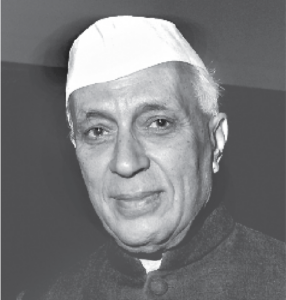
Prime Minister
Jawaharlal Nehru, also known as Pandit Nehru, was a political leader of Bharat and a freedom fighter. His contribution to the Bharatiya history of independence is immense. He was also very fond of children and was commonly referred to as Chacha Nehru by them.
Nehru was also a close associate of Mahatma Gandhi and thrived with Gandhi as his mentor. Nehru had also planned many movements demanding dominion status and total independence for Bharat from the British.
Jawaharlal Nehru organised the first Kisan March (the march organised for the Farmers) in Pratapgarh, then in Uttar Pradesh, then known as the United Provinces.
He was imprisoned twice from 1920 to 1922 for his active role in the Non-cooperation Movement. He was the baton-charged at Lucknow and also played an essential role in opposing the Simon commission. In the year, 1928, Jawaharlal Nehru formed the “Independence of India League” and was appointed as its General Secretary.
Nehru became the President of the Lahore session of the Indian National Congress in 1929 and passed the resolution of Purna Swaraj. Again from the period 1930 to 1935, Jawaharlal was imprisoned numerous times for his role in Salt Satyagraha, or the Dandi March, and other similar movements.
With the untiring efforts in the freedom struggle, Bharat finally attained independence on 15th August 1947, and he became the first Prime Minister of an independent and free Bharat.
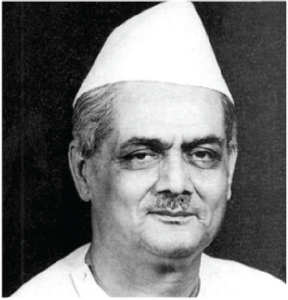
Speaker,
Lok Sabha
Ganesh Vasudev Mavalankar, also known as Dadasaheb, was an Bharatiya independence activist and a prominent political figure during the 20th century. He served as the President of the Central Legislative Assembly, the Speaker of the Constituent Assembly of Bharat, and the first Speaker of the Lok Sabha, the lower house of the Bharatiya Parliament. He was born into a Marathi family, lived and worked in Ahmedabad, and was an alumnus of Gujarat College where he completed his B.A. in Science and Government Law School in Bombay.
Mavalankar joined the Bharatiya Independence Movement and held various positions in the Congress party. He was appointed Secretary of the Gujarat Provincial Congress Committee in 1921 and a Member of the Ahmedabad Municipality from 1919 to 1937. He temporarily joined the Swaraj Party in the 1920s but returned to Gandhi’s Salt Satyagraha in 1930. He was elected as the speaker of the Bombay Legislative Assembly in 1937 and held the position until 1946 when he was also elected to the Central Legislative Assembly.
After Bharat’s independence in 1947, he headed a committee to separate the constitution-making role of the Constituent Assembly from its legislative role. He was elected as the Speaker of the Constituent Assembly (Legislative) in 1947 and later as the Speaker of the Provisional Parliament in 1949. In 1952, he was elected as the Speaker of the first Lok Sabha. He resigned due to a heart attack in 1956 and passed away later that year at the age of 67.
Throughout his political career, Mavalankar was deeply involved in the Bharatiya Independence Movement and was instrumental in shaping independent Bharat’s political and constitutional structures. His contributions to Bharatiya politics are remembered today and continue to influence the Bharatiya political scenario.
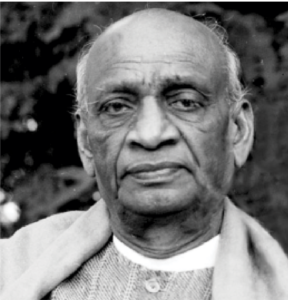
Former Deputy
Prime Minister and
Home Minister
Sardar Vallabhbhai Patel, also known as the “Iron Man of India,” was a prominent leader in Bharat’s freedom struggle and a founding father of the country. He played a crucial role in unifying the country after independence, convincing the princely states to join the Bharatiya union and ensuring Bharat’s territorial integrity. As a symbol of Bharat’s strength and unity, his statue, the Statue of Unity, stands tall at 182 meters.
As a close associate of Mahatma Gandhi, he played an important role in Civil Disobedience and the Quit India Movement. Patel’s contribution to Bharat’s nation-building and national integration is unparalleled, and he remains one of the most respected and revered figures in Bharat’s history. His vision of a united, strong Bharat continues to guide the country today.